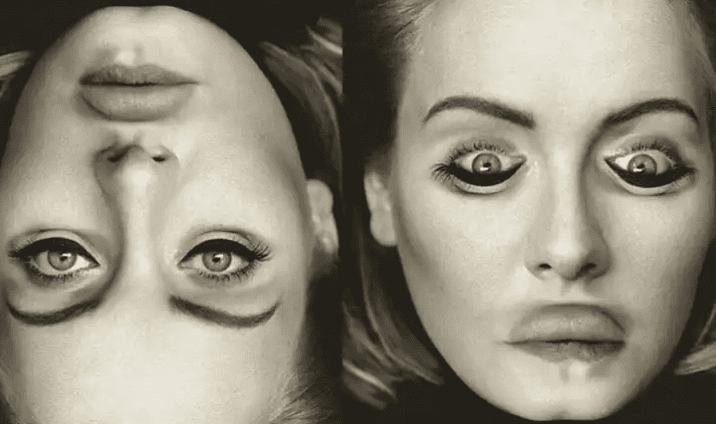Coincidences or findings that occur by chance are fixed in the world of science and technology. These are moments of eureka, the product of perseverance, not magic. Coincidental discoveries in psychology are not as well known as those in the world of medicine or chemistry.

Developments in the scientific field such as penicillin, Prussian blue pigment, Teflon, X-rays or aspirin did not occur by chance. They were the result of open minds. Minds that can appreciate all possible solutions to a problem, even if they seem unlikely at the time.
- The earthquake that frightened Mars; It’s the biggest one ever!
- A third of U.S. residents fear Metaverse
Psychological coincidences are a wonderful combination of luck, as well as curiosity, with flexible mental approaches to innovation. Now let’s take a look at eleven theories and concepts that arise as a result of coincidences in psychology.
Random discoveries in psychology
The term Serendipity was first coined in 1754 by the British writer Horace Walpole. It comes from the Three Princes of Serendip, a Persian story whose heroes always make discoveries by chance.
Random discoveries in the field of psychology (as well as science in general) have been a common phenomenon throughout history. Indeed, some wonder how many discoveries we may have missed because researchers did not appreciate or take into account these unexpected variables.
Anyway, in this article, we will pay tribute to nine of these random discoveries in psychology that perhaps not everyone knows about.
1. Pavlov’s classic conditioning
Ivan Pavlov’s classical conditioning theory is an important part of behavioral sciences. Thanks to his contribution, we understand the basics of connotational learning. However, it is interesting to know that this famous physiologist is actually interested in understanding digestive processes. In particular, the tendency of dogs to secrete saliva when food is presented.
Suddenly, something happened that led Pavlov to develop the theory of conditional response in psychology. Whether the dogs brought food with them or not, when they saw the lab staff coming in, they started drooling.
This made it easier for an organism to articulate the learning process in which it associated a conditional stimulus (CS) and an unconditional stimulus (U.S.); CS can provoke a conditional response (CR).
2. Psychopharmaceuticals and LSD
Tricyclic antidepressants were drugs originally used to treat tuberculosis. But over time, its benefits in improving mood were seen. This was an advance in the treatment of depressive disorders.
In the 1940s, Swiss chemist Albert Hofmann worked for the pharmaceutical company Sandoz. He was trying to stabilize lisergic acid, an ergotamine derivative (a fungal component) used to treat migraines. As a result of this research, he accidentally found high schoolrgic acid dietilamid -25 (LSD).
3. How the brain processes visual information
David Hubel and Torsten Wiesel received the Nobel Prize in 1981 for an accidental breakthrough. They were trying to understand how the receiving areas of neurons in the visual cortex work.
Until then, this area of the visual brain was thought to consist of a structure of thousands of cells that work together to recreate everything the eyes capture. But after several tests, luck intervened, and these two scientists discovered that this was not the case. In fact, they found that there are selective cells that are activated only according to certain stimuli.
4. Right ear in dichotic listening
Dichotic listening in cognitive psychology and neuroscience is an important phenomenon. It facilitates attention processes and is a widely used procedure for investigating selective attention in the auditory system. In general, people always have a certain advantage over the left ear in hearing with the right ear.
This is one of the best known random discoveries in psychology. The discovery was made by Dr. DoreenKimura and published in 1964.
5. Orientation depends on the hippocampus
The hippocampus is part of the limbic system and is an important region in processes such as learning, memory and emotional regulation.
John O’Keefe is a neuroscientist, psychologist and Nobel Prize laureate. He discovered that the hippocamus also facilitates orientation processes. This was a coincidental finding when investigating memory processes in animals.
6. The McGurk Effect
Sometimes when you can’t hear someone well, you look them in the mouth. However, you make small mistakes in this lip reading process.
The McGurk effect tells us that when someone pronounces the syllable ‘ga’, it is ‘in’ what we understand due to a mistake in the brain when trying to decipher speech through vision.
This was another of the random discoveries in psychology in the 1970s. Cognitive psychologists Harry McGurk and John MacDonald were responsible.
7. Thatcher illusion phenomenon
The Thatcher illusion is an extremely interesting optical effect. Occurs when you change a person’s image by inverting it. Sometimes your brain doesn’t really know what’s going on. It detects that there is some kind of abnormality, but cannot clarify exactly what it sees.
Dr. Peter Thompson was responsible for this discovery. In 1980, he published a study on his unexpected findings. Another random discovery in psychology.
8. Mirror neurons
The discovery of mirror neurons by neurobiologist Giacomo Rizzolatti was also a fluke. When analyzing brain activity associated with a macaque’s grip action, he was able to look at the experimenter and see that certain neurons in the animal were activated.
Then the act of caring allowed the animal to imitate people and learn from them. This kind of process is mediated by mirror neurons, which until then were not known.
9. Recurrence blindness
Another random discovery in psychology is about blindness again. It occurs when the brain no longer recognizes a visual element (images and words) that it is exposed to many times. For example, when you repeat a word many times, it ultimately makes no sense.
This phenomenon was a random discovery made by Nancy Kanwisher at an inquest in 1987.
Such historical facts are fixed in any field of information. However, they are especially common in scientific disciplines, as they tend to be developed on an experimental plane. Luck and unexpected things are part of our lives. It is important to know how to take advantage of these random events.




